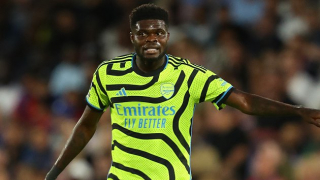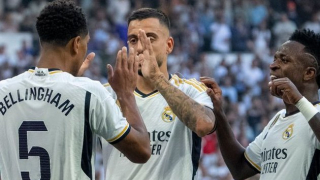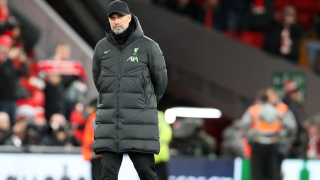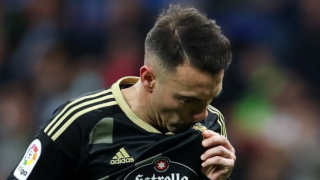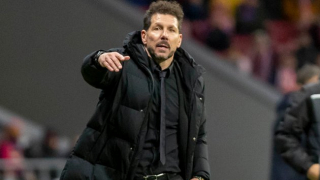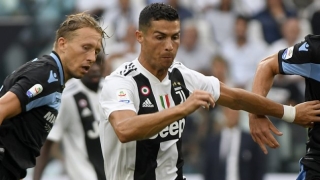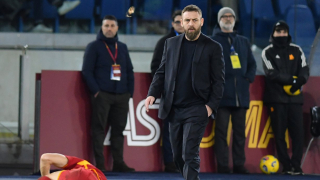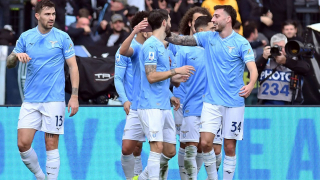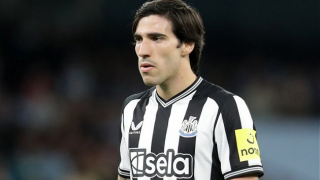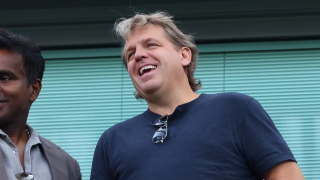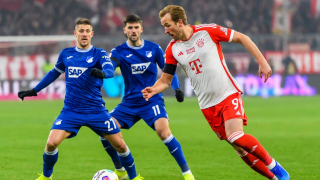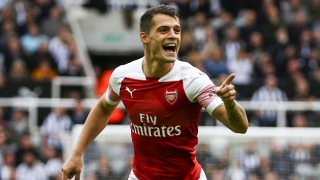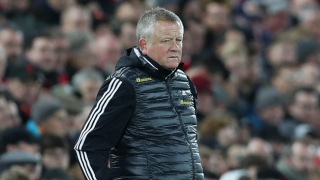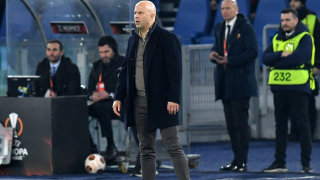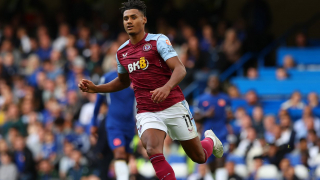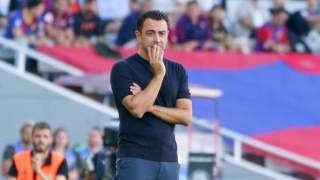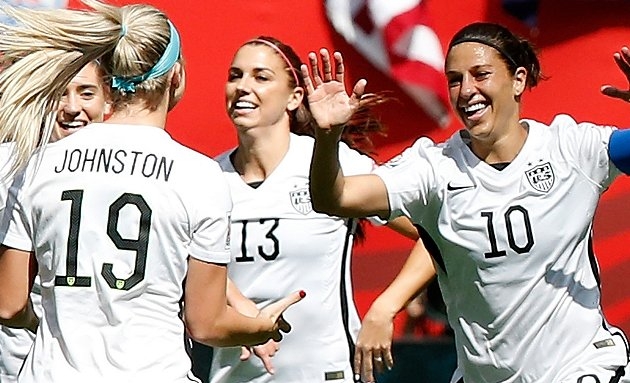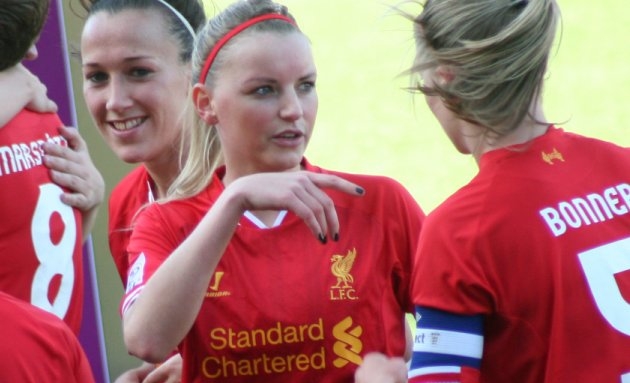This week, after a flurry of regional and international tournaments (OFC, CAF, Copa Libertadores and U-17 WWC among them) and before the frenzy of the 2019 Women's World Cup draw analysis, we review the recent book Under the Lights and In the Dark: Untold Stories of Women's Soccer by Gwendolyn Oxenham. TribalFootball.com also talked with Oxenham about her book and the growth of the women's game. We also present some initial thoughts from the Women's World Cup Draw on December 8, which sets the schedule for the first round of games.
Under the Lights and In the Dark: Untold Stories of Women's Soccer
This week we review a recent book on the global women's game by Gwendolyn Oxenham, the former Duke University player who previously wrote Finding the Game: Three Years, Twenty Five Countries and the Search for Pickup Soccer, and also directed the film documentary based on that book: Pelada. Her latest book, published, last year by Icon Books in the U.K, is entitled: Under the Lights and In the Dark: Untold Stories of Women's Soccer.
For anyone involved in the women's game, whether as player, coach, front office executive, media or fan, this book is an absolute must read and elevates the limited literature on the women's game exponentially. This reader has reviewed recent biographies by international players/coaches Hope Solo, Carli Lloyd and Hope Powell. Oxenham's book is different as it focuses on key issues affecting the sport by analyzing the interesting and unique stories of players from around the world through her 12 chapters.
Oxenham points out some cautions in particular for players who go abroad to continue their career. Her second chapter entitled Welcome to Russia chronicles former University of Portland and Portland Thorns forward Danielle Foxhoven's experience in Russia with FC Energiya Voronezh. Foxhoven describes her physical and psychological abuse from the team's owner/head coach, including being forced to take vitamins, which she later learned were steroids. In recent interviews with international players, this writer has not encountered these types of situations recently, but they certainly can take place (as we have seen with recent stories of Afghanistan FA officials accused of all sorts of abuse towards their national team players), along with late or non-existent paychecks, which Foxhoven also had to deal with. Oxenham rightly correlates the Energiya situation to Dan Borislow, the owner of the majicJack franchise in South Florida that ultimately led to the implosion of the Women's Professional Soccer League in 2011. Borislow essentially attracted an all-star team of U.S. National Team players because his daughter was a youth player and then tried to make them feel beholden to him. One player who left the franchise for another team midseason famously equated her departure from majicJack, as the equivalent of 'leaving North Korea.'
Chapter 6 entitled Play the Gay Away, focuses on the Charlotte Eagles—a strong side in the now defunct USL W-League that was run by Missionary Athletes International sports ministry organization that this reporter covered in the past—and how players that talked about their past homosexuality behavior or even thoughts that didn't conform to 'religious norms' ultimately felt extreme pressure from the organization and even fellow players, with one player being released, oddly enough from a missionary organization that was voluntary and did not pay their players. Oxenham's excellent reporting and engaging writing tells a story of an unflattering underlying component that was much different from the organization's public face. She wrote:
"During games, Heather rode the bench. She had never ridden the bench in her entire life…And while every single other bench player for the Eagles got minutes, she didn't. They never played her. It was odd to go from being a captain of a team to feeling like a pariah…She didn't quit the team, didn't even think about quitting. Part of it was stubbornness. I thought, 'You guys are just going to have to stare at me this whole season. You are just going to have to deal with the gay girl on the bench.' But the other part was love of playing. Because after twenty years of playing, the game was a large part of my identity. No matter what, I got to play every single day, and I needed that at that time. Soccer was the thing that rooted me – I thought it was worth it." Heather was not invited back next season, nor would she have gone.
Chapter 9, Comeback Moms, focused on mothers fighting stereotypes—particularly at the national team level but also with clubs—that once they gave birth, that they were no longer priorities for the rosters. Oxenham features U.S. international forward Amy Rodrigues (now with the Utah Royals), who won a World Cup title in 2015 as a mother, Jess McDonald—who has won two NWSL titles in the last three years and finally has been capped at the U.S. National Team level—and Melissa Barbieri of Australia, who played in her third WWC in 2015 after being written off by the Matildas and most W-League teams after she gave birth to her daughter. I have interviewed Melissa Barbieri multiple times, beginning at the 2007 World Cup in China, on national team tours in the U.S. and Europe and while she played in the W-League in Adelaide and you will not find a more erudite advocate of the women's game; good on Oxenham for using her as a lynchpin for an excellent chapter.
Other chapters feature U.S. international and Seattle Reign midfielder Allie Long and her experiences playing in highly competitive men's Latino futsal leagues in New York City boroughs, Marta of Brazil (Orlando Pride in 2017 and 2018 but rumored to be European bound in 2019), Josephine Chukwunonye of Nigeria's 2015 WWC team—who played a couple of games for the NWSL's Washington Spirit in 2015 and since has played in Sweden—and WWC 2015 Star Gaelle Enganamouit of Cameroon's 2015 WWC squad, who recently helped her side make the field for France 2019 and has played in Serbia, Sweden, China and this season played in Norway with Avaldsnes. Chapter 4 entitled The Football Refugee looks at Nadia Nadim's journey as a refugee from Afghanistan with her family and successful integration in Denmark, ultimately combining medical school with her professional soccer career in Denmark, the U.S. and now in England with Manchester City.
Another strong chapter is Chapter 11, Beyond the Field, focused on players post-soccer careers. This is one key element of covering professional women's soccer that always is a concern of players when salaries for most border subsistence levels or below, allowing alternate career choices, schools or relationships to provide strong attractions that might be delayed if women players were making salaries at least closer to men's salaries.
TribalFootball.com talked to Gwendolyn Oxenham this past week and she said that the idea for her book came during the 2015 Women's World Cup in Canada: "I watched the Women's World Cup and I was absolutely stunned that I knew absolutely nothing about anyone other than the U.S. team. I went on a giant scavenger hunt to find stories. I'd hear about a friend of a friend of a friend and track them down. I'd look at the Wikipedia Page for the Nigerian team and I'd notice that one Nigerian player played at a U.S. college so I called the college coach and she would put me in touch with a Nigerian-American and she would put me in touch with her teammates. It was a big scavenger hunt to see who I could touch with and what stories I could find."
Looking to the future of the game, Oxenham feels that: "There are opportunities exploding for the women's game, such as in the French League and English League and people are putting money into the game. League salaries are going up too." She finds the growth in Latin America as intriguing, particularly in leagues such as in Colombia and Mexico as well as CONMEBOL recently requiring Copa Libertadores men's tournaments participants to field women's sides. She is currently working on a work of fiction but, as a former college and professional player, is always interested in where women's football is headed in the future, which we all hope will be quite bright.
Under the Lights and In the Dark is a fantastic book that is well written and quite well researched; Oxenham shows that not only does she know a lot about the international game—she played for a time after college with Santos in Brazil (a team I studied in depth years ago and which has treated its women's team much differently from their men's sides (even youth teams). This is a must read and hopefully its success will open up paths for other women football writers to publish serious books on the sport.
Note: Oxenham's former club Santos of Brazil finished runner-up last week in CONMEBOL's Women's Copa Libertadores, losing to Colombia's Atletico Huila 5-3 on penalties after a 1-1 draw in the finals. It was a first ever continental club title for a team from Colombia, which after two consecutive Women's World Cups did not qualify for France 2019, in the tenth edition of the tournament which began in 2009. Santos won the first two titles in 2009 and 2010 and finished third in 2011, won by three time champion and compatriot Sao Jose, in Sao Paulo state.
2019 Women's World Cup Draw
The draw for the 2019 Women's World Cup in Paris on December 8 revealed the following six first round groups for the 24 finalists:
Group A
A1 France
A2 Korea Republic
A3 Norway
A4 Nigeria
Group B
B1 Germany
B2 China
B3 Spain
B4 South Africa
Group C
C1 Australia
C2 Italy
C3 Brazil
C4 Jamaica
Group D
D1 England
D2 Scotland
D3 Argentina
D4 Japan
Group E
E1 Canada
E2 Cameroon
E3 New Zealand
E4 Netherlands
Group F
F1 USA
F2 Thailand
F3 Chile
F4 Sweden
The top two teams in each group and the four best third place sides advance to the Round of 16 next summer. We present our initial thoughts on each group.
Group A is a very strong and Nigeria and Korea Republic should be in a good position to make the Round of 16 behind France and Norway—World Cup winners in 1995. Korea Republic finished second in their group in 2015 to advance to the knockout stages while Nigeria finished at the bottom of their group. Thomas Dennerby, the former Swedish national team manager, will be looking to take an aging Nigeria team beyond the first round for only the second time in their eight tournaments, having advanced to the quarterfinals in 1999. They have only won three and tied two of 19 WWC matches.
Group B is arguably the Group of Death for this Women's World Cup, with reigning Olympic Champions Germany (albeit with a new coach as former Swiss head coach Martina Voss-Tecklenberg only has about six months to integrate her tactics after Switzerland fell to Netherlands for the final UEFA spot) Spain, China and South Africa. First time Women's World Cup qualifiers South Africa was a revelation at the recent African Cup of Nations, with Thembi Kgatlana (Houston Dash) and Refiloe Jane (Canberra United) key scorers to watch; the Banyana Banyana could upset one or more of their group opponents and will leverage a core group of players who have played in the NWSL or U.S. colleges.
Group C has Australia and Brazil scheduled to meet for the fourth consecutive tournament, along with Italy and debutants Jamaica. Italy hopes to improve on their one win in the Group Stage of the 2017 European Championships where they finished tied for third place in the first round and did not qualify for the knockout stage. They only lost one of their eight UEFA qualifiers for this tournament, winning their group by two points over Belgium. Australia is favored by many (including this writer) to make at least the last four but I predict they will be finalists, leveraging Sam Kerr and a talented generation of players. Jamaica was a joy to watch in the CONCACAF Gold Cup Qualifiers but this group will not provide any easy points for them.
Group D sees historic U.K. rivals and neighbors England and Scotland playing in their first match, along with 2011 Winners Japan and Argentina. England—Bronze Medalists in 2015—should advance directly with Japan. A key element to watch is if Scotland can amass enough points to move on from a likely third place spot. Argentina has recently re-signed Washington Spirit forward Estefania Banini, who is currently playing on loan in Spain with Levante, and defeated Panama surprisingly with little difficulty (5-1 on aggregate) in the CONCACAF/CONMEBOL Inter-Confederation Qualifiers, but they need to play more games against better opposition than Puerto Rico, who they visited earlier this year, to have any hope of earning their first point in their third tournament appearance.
Group E pits Canada and 2017 European Champions Netherlands along with New Zealand and Cameroon. Cameroon will be optimistic to advance to the Round of 16 in third or better—which they accomplished in 2015 by actually finishing second in their group ahead of Switzerland—but recent hire Tom Sermanni is a savvy coach and New Zealand is still looking for their first WWC win in 12 games across four previous tournament appearances and this could be their year to advance.
Group F has the reigning and Three Time World Cup Champions Americans facing Sweden, along with debutants Chile and Thailand. Thailand has qualified for two consecutive WWCs as the fifth place qualifier from Asia, but gave up 10 goals in 2015, though they finished third ahead of the Ivory Coast in their group, and was fifth among third-place sides, missing out on a knockout stage appearance. Chile shocked Australia 3-2 away last month and has an experienced side with a number of key players in Europe. Goalkeeper Christiane Ender (PSG in France) is crucial for Chile to surprise the pundits and advance to the Round of 16. Head Coach Jill Ellis said in a conference call a few hours after the draw that being the defending champion is not something that she thinks about often: "Some of the players were not on that 2015 World Cup team so they are not defending a trophy but going to attack a new one. We have to approach it as a team that has a unique opportunity; we're incredibly talented, a lot of things have to fall into place to win a World Cup, but it's really is what is in front of us than what we have done previously." The Americans are rightly confident of doing well in France based on their strong CONCACAF Gold Cup victory to make the World Cup finals for the eighth consecutive time.
Tim Grainey is a contributor to Tribal Football. His latest book Beyond Bend it Like Beckham on the global game of women's football. Get your copy today.
Follow Tim on Twitter: @TimGrainey

